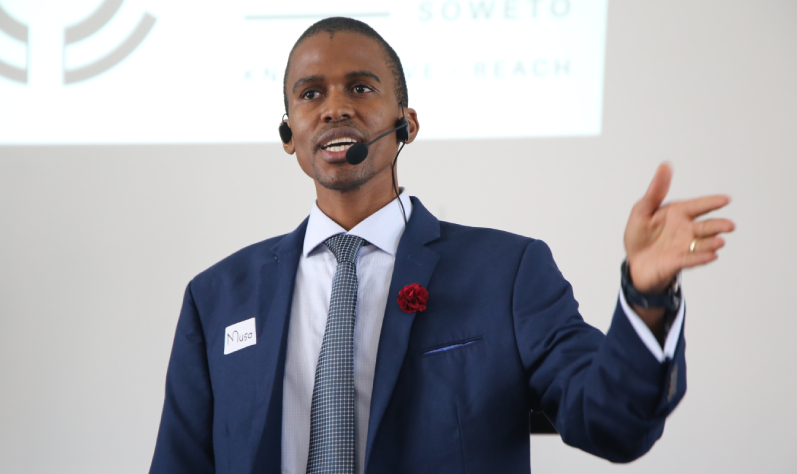Rev Musa Ntinga – Lead Pastor at Christ Central Soweto
We asked Rev Musa Ntinga, Lead Pastor at Christ Central Soweto in Gauteng, South Africa for his insights on ministering during the coronavirus pandemic, learning how studying at GWC equipped him for ministry, particularly during a global crisis.
How do you feel that having studied at GWC has equipped you in ways that have stood you in good stead over this pandemic?
Probably the most direct way is that through studying at GWC I have been given a Biblical framework, because as one reads the bible and applies it to our current situation it is helpful to know, looking at the history of the church, that there were points at which God’s people were in crisis – and in gaining an understanding of suffering and the human experience and how the Bible speaks to that. I was equipped in terms of Bible handling across different topics and the complexities of operating in a broken world where Christians are not immune to suffering and yet, at the same time, in which Christians are hopeful because of what Christ has done for us. I think it’s been helpful for me personally, on a theological level, as during this crisis I have never doubted God’s love or what God is doing in the world. While I may not have expected that there would be a global pandemic in my lifetime on a human level, in my understanding of the Bible and of history and as a pastor it was not a shock, because I was prepared for the whole human experience and the world we live in. Indirectly, it has been through the relationships I built at college. These have given me people to go, to talk and share with about what we all are going through. This is an indirect, but also a very tangible advantage, because if I was not at college I would not have forged these relationships.
Are there beneficial things that you have adopted more quickly because of the pandemic and that you will take forward?
Yes, there have been a few things. One of them is that we have wanted to have more of an online presence. One of our main frustrations was trying to find someone with technical savvy to step up and take ownership of this ministry, but the need to minister to our people during lockdown has pushed us forward. Now people have stepped into this ministry and we are seeing the fruit, which is very encouraging.
Also, prior to the pandemic, as a church we have been in church planting mode, where we would do certain things but not communicate these as clearly as we should with the rest of the church. Lockdown has helped us to have more, regular communication with the congregation so that the church as a whole knows more about what is going on. We have had to set up WhatsApp groups and communicate regularly, taking us out of church planting mode to doing things more collectively as a church body.
Have there been positives that have taken you by surprise?
One way is how we have been propelled forward in our men’s ministry. The women were already meeting and doing their thing, but with the men it was slow going getting them just to meet to chat and figure out how they can better serve one another. This was a ministry where I thought we would have to pick up the pieces next year and see how we are going to re-launch the ministry, but to my surprise, maybe because of the challenges that everyone is facing, our men have wanted to hear from other men on how they are coping in the crisis and this has led to our men wanting to meet more regularly. We have met on Zoom and the men have been very open and honest as to what is happening in their lives. This growth in our men’s ministry has been a great encouragement to me.
Our mercy ministry has exploded both in terms of what we have done and the reach that the ministry has. This ministry has become much wider, and so we need to keep thinking in terms of how to keep doing it better, demonstrating the love we have for God and for our brothers and sisters in a very tangible way by helping those in need. We started by helping five families with food and then in a very short space of time the number of families grew considerably, but praise God for the number of partners around us. We could approach them for food parcels and other things and people were more than happy to help.
Overall, we are working toward meeting again as a church and we are going to have to work out what that looks like. We are hopeful but cautious and I am walking into the future a bit anxious, but as we move forward we will see what God has planned for us.


